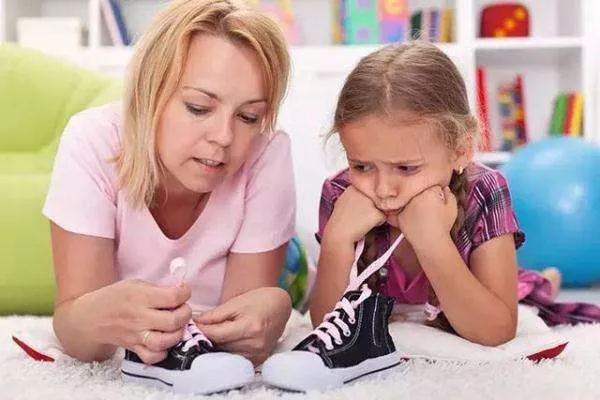Bipolar disorder is a complex mental health condition characterized by extreme mood swings that include emotional highs (mania or hypomania) and lows (depression). These mood shifts can significantly impact an individual’s behavior, thoughts, and daily functioning. Symptoms of bipolar disorder may vary widely among individuals but often include periods of elevated mood, increased energy, impulsivity, irritability, and changes in sleep patterns. Living with bipolar disorder can be challenging, as it can interfere with relationships, work, and overall quality of life. However, with proper diagnosis, treatment, and support, individuals with bipolar disorder can lead fulfilling and productive lives.
Understanding Childhood Trauma
Childhood trauma encompasses a range of adverse experiences that occur during a person’s formative years. These experiences can include physical, emotional, or sexual abuse, neglect, witnessing domestic violence, or experiencing parental separation or loss. Childhood trauma can have profound and long-lasting effects on an individual’s physical, emotional, and psychological well-being, influencing their development and functioning throughout life.
Research suggests that childhood trauma can increase the risk of various mental health disorders, including depression, anxiety, post-traumatic stress disorder (PTSD), and substance abuse. Understanding the impact of childhood trauma on mental health is crucial for identifying risk factors and developing effective interventions.
Research Findings
Numerous scientific studies have investigated the relationship between childhood trauma and bipolar disorder, revealing compelling evidence of a link between the two. One study published in the Journal of Affective Disorders found that individuals with bipolar disorder were more likely to report a history of childhood trauma compared to those without the condition. Specifically, experiences of physical or sexual abuse during childhood were significantly associated with the development of bipolar disorder later in life.
Another study published in JAMA Psychiatry found that childhood adversity, including trauma such as abuse or neglect, was associated with an earlier age of onset and increased severity of bipolar disorder symptoms. These findings highlight the importance of addressing childhood trauma in the assessment and treatment of bipolar disorder.
See Also: Does adhd get misdiagnosed as bipolar?
Biological and Psychological Mechanisms
The connection between childhood trauma and bipolar disorder involves complex biological and psychological mechanisms. Exposure to early adversity can lead to alterations in brain structure and function, particularly in regions involved in emotional regulation, stress response, and reward processing. These neurobiological changes may increase vulnerability to mood dysregulation and contribute to the development of bipolar disorder.
Furthermore, childhood trauma can shape an individual’s psychological outlook and coping strategies, influencing their ability to manage stress and regulate emotions. For example, individuals who experience trauma during childhood may develop maladaptive coping mechanisms, such as substance abuse or self-harm, which can exacerbate symptoms of bipolar disorder.
Expert Opinions
Mental health professionals emphasize the importance of recognizing and addressing childhood trauma in the assessment and treatment of bipolar disorder. Dr. Sarah Johnson, a clinical psychologist specializing in trauma and mood disorders, explains, “Childhood trauma can significantly impact an individual’s emotional resilience and coping mechanisms, increasing their vulnerability to mood disturbances later in life. It is essential to explore trauma history in the assessment and formulation of treatment plans for individuals with bipolar disorder.”
Dr. Michael Chen, a psychiatrist with expertise in bipolar disorder, adds, “Understanding the link between childhood trauma and bipolar disorder can inform treatment approaches that address both the underlying trauma-related issues and the mood symptoms. Integrating trauma-informed care principles into bipolar disorder treatment can improve outcomes and enhance overall well-being.”
Treatment and Management
Treatment for bipolar disorder typically involves a combination of medication, psychotherapy, and lifestyle interventions. Mood stabilizers, antipsychotic medications, and antidepressants may be prescribed to help stabilize mood and reduce symptoms. Psychotherapy, such as cognitive-behavioral therapy (CBT) or dialectical behavior therapy (DBT), can help individuals develop coping skills, improve emotional regulation, and address trauma-related issues.
In addition to professional treatment, self-care strategies such as maintaining a healthy lifestyle, managing stress, and engaging in supportive relationships can play a crucial role in managing bipolar disorder symptoms. It is essential for individuals with bipolar disorder to work closely with mental health professionals to develop a comprehensive treatment plan tailored to their specific needs and circumstances.
Support and Resources
For individuals who have experienced childhood trauma or are living with bipolar disorder, accessing support and resources is essential. Organizations such as the National Alliance on Mental Illness (NAMI) and the Anxiety and Depression Association of America (ADAA) offer information, advocacy, and peer support programs for individuals and families affected by mental health conditions.
Additionally, seeking support from qualified mental health professionals, including therapists, counselors, and psychiatrists, can provide guidance and assistance in navigating the challenges of living with bipolar disorder and addressing trauma-related issues.
Conclusion
In conclusion, the relationship between childhood trauma and bipolar disorder underscores the importance of understanding the impact of early adverse experiences on mental health. By recognizing the link between trauma and mood dysregulation, mental health professionals can develop more effective interventions to support individuals living with bipolar disorder. Through comprehensive treatment, including medication, therapy, and self-care, individuals affected by bipolar disorder can achieve stability, resilience, and a higher quality of life.
Related topics:




















